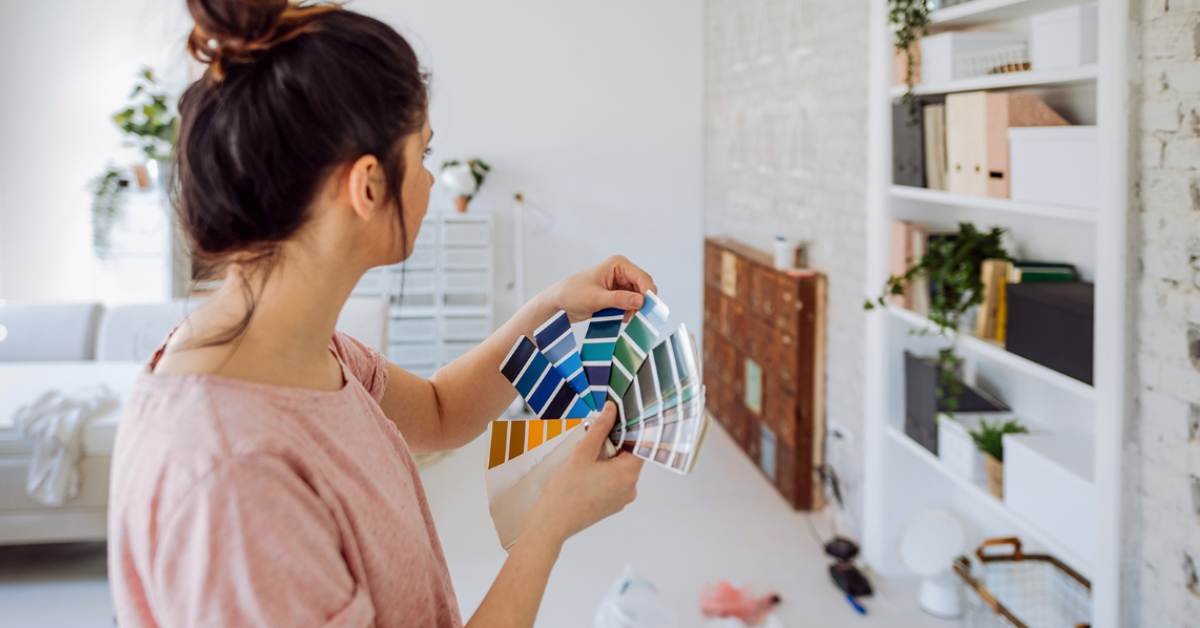Embarking on do-it-yourself (DIY) home projects can be incredibly rewarding. From adding a personal touch to saving money, DIY enhances your space while honing your skills.
However, diving into home projects may feel daunting for beginners without the proper guidance. This article provides advice for novices, ensuring your first DIY project succeeds.
Why Start DIY Home Projects?
DIY home projects are more than just a trend; they’re a practical way to enhance your living space. Here’s why they’re worth considering:
Cost Savings
DIY often costs significantly less than hiring professionals. You can achieve similar results on a budget with proper planning and resource allocation.
Skill Building
Every project helps you learn new techniques, from painting walls to assembling furniture. These skills are transferable to future projects, increasing your confidence.
Personalization
Unlike mass-produced solutions, DIY lets you create personalized designs tailored to your preferences and lifestyle.
Essential Tools Every Beginner Should Own
Starting a DIY journey requires investing in essential tools. These tools will form the foundation of most projects:
Basic Hand Tools
- Hammer: Perfect for assembling furniture and minor repairs.
- Screwdrivers: Both flathead and Phillips screwdrivers are necessary for assembling and disassembling items.
- Measuring Tape: Accurate measurements are crucial for any successful project.
Power Tools
- Drill: Useful for creating holes and securing screws.
- Jigsaw: Ideal for cutting through wood, plastic, and even thin metal.
- Sander: Smooth finishes can make a massive difference in quality.
Safety Gear
- Gloves: Protect your hands from splinters and sharp edges.
- Safety Goggles: Essential for preventing eye injuries during sawing or drilling.
Steps to Plan Your First DIY Home Project
Jumping into a project without a plan often leads to frustration. Follow these steps to ensure smooth execution:
Choose a Manageable Project
For beginners, start with small tasks like painting a room, building a shelf, or fixing a leaky faucet. Smaller projects allow you to focus on learning without feeling overwhelmed.
Research and Gather Resources
Look for tutorials, blogs, or videos that guide you step by step. Before starting, create a checklist of tools and materials.
Set a Realistic Budget and Timeline
Determine how much you’re willing to spend and allocate adequate time. Rushed work often needs to be improved.
Test on Scrap Materials
Before committing to the main project, practice techniques on scrap materials. This helps you avoid costly mistakes.
Common Mistakes to Avoid in DIY Projects
Understanding common pitfalls can save you from frustration and wasted resources. Here’s what to watch out for:
Skipping Preparation
Always prepare the surface and gather tools in advance. Skipping preparation leads to poor-quality results.
Overlooking Safety
Neglecting safety precautions can lead to accidents. Always wear protective gear and follow instructions for tools.
Underestimating Complexity
Avoid starting with overly complex projects. As a beginner, simplicity is critical to building confidence and skills.
FAQs on DIY Home Projects
What are the easiest DIY projects for beginners?
Simple projects like painting walls, assembling pre-cut furniture, and hanging shelves are great for starters.
How can I find affordable materials for DIY projects?
Check local hardware stores, online marketplaces, or recycling centres for budget-friendly materials.
Is it necessary to invest in power tools as a novice?
Wait to immediately. Many projects can be completed with hand tools. Consider renting power tools until you’re ready to invest.
How do I avoid wasting materials during my projects?
Measure accurately, follow tutorials, and practice on scrap materials to minimize wastage.
How do I know if a project is too ambitious?
If the project requires advanced skills or tools you’re unfamiliar with, it may be too challenging. Start with smaller tasks first.
Can I involve kids in DIY projects?
Yes, but ensure tasks are age-appropriate, and safety precautions are followed. Painting or simple crafts can be a fun way to involve them.
Conclusion
DIY home projects are an excellent way to personalize your space while saving money and gaining valuable skills. Even novices can achieve impressive results by starting small, investing in essential tools, and avoiding common pitfalls.
The key lies in preparation, patience, and practice. Begin your DIY journey today and transform your house into a home filled with your unique touch.
Latest Post!
- The Ultimate Guide to Luxurious and Eco-Friendly Bath Products: Featuring Cunke
- Bailey Self Storage: The Secure and Convenient Storage Solution You Need
- PR Construction, LLC: Building Dream Homes with Exceptional Craftsmanship
- A Detailed Look at Lang’s Painting: Unveiling the Artistry Behind the Masterpieces
- Moving Made Easy with AMPOL Moving, Inc.: Your Trusted Illinois Partner
- WepBound: A Groundbreaking Platform Revolutionizing Digital Connectivity






